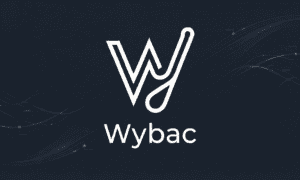An overlooked math error in lending code could have drained millions. It was caught by an AI tool before launch – a sign of how automated auditors are beginning to reshape smart contract security.
A Vulnerability That Never Reached Mainnet
Weeks before a leading decentralized lending protocol was set to launch, an AI auditor flagged a vulnerability that would have allowed attackers to quietly siphon off funds.
The flaw was simple in design but severe in impact. The withdrawal function rounded tiny transactions down to “zero” in user balances while still sending tokens from reserves. By repeating the action in an automated loop, an attacker could have drained the pool entirely – nearly $2 million in total value locked (TVL), even with a zero balance.
Had the bug made it to mainnet, the consequences would have been immediate. Withdrawals would fail, lending would seize up, and depositors would discover that reserves no longer matched deposits. To say that the ramifications would have been bad would be an understatement.
Instead, the exploit was patched before deployment. The discovery didn’t come from a human team, but from Sherlock AI part of a wave of automated systems now entering the security process.
How Smart Contract Auditing Typically Works
Smart contract audits are a standard pre-launch ritual in DeFi. Protocols hire human engineers to review code, function by function, in search of weaknesses. These audits have stopped countless vulnerabilities from ever reaching production, but they are constrained: expensive, timely, and ultimately dependent on human focus.
With protocols growing in size and complexity (and billions in user deposits at stake), the industry has been forced to look for new approaches.
Enter the AI Auditor
AI systems approach the problem differently. They can scan code continuously, flagging math quirks, logic errors, and overlooked edge cases at machine speed. They don’t replace human reviewers, but they add another set of eyes that never tires and can be run across every new commit.
The $2M lending bug illustrates the value of this model. What looked like a harmless rounding calculation would have been catastrophic in practice. An AI system flagged it before attackers ever had the chance.
Sherlock as a Case Study
Sherlock has been among the first firms to operationalize AI auditing. Its system produced a structured report on the lending bug: where the error appeared, how it could be exploited, and what the financial fallout might look like.
“Catching this issue showed that AI auditors are already changing outcomes,” a Sherlock team member said. “They’re not theoretical anymore. They’re surfacing mistakes that human audits might not catch.”
While Sherlock provided the example, the broader story is about the arrival of a new category. Just as professional auditing firms once became standard for DeFi projects, AI auditors are beginning to carve out their place in the process.
Why the Industry Should Pay Attention
DeFi has already lost billions to bugs and logic flaws. Each incident not only empties wallets but erodes trust in blockchain as a whole. The promise of AI auditors is not perfection, but additional defense – a way to surface errors at scale and reduce the odds that damaging vulnerabilities slip through.
The combination of human review and AI oversight may soon become the new normal. The $2M discovery serves as one of the first public proof points of that shift.
Looking Ahead
The bug never touched mainnet, but it could mark an inflection point. For protocols, AI auditors are already producing tangible results, preventing losses, and reshaping how teams think about pre-launch security.
This moment may be remembered less for the bug itself than for what it represents: the emergence of AI auditors as a new category in Web3 security.
About Sherlock
Sherlock describes itself as a full lifecycle security partner for smart contracts, combining researchers, adversarial testing, AI systems, and financial coverage. The company supports protocols from build through launch and ongoing updates, treating security as a continuous process rather than a single event. Last week, Sherlock added Sherlock AI to its suite, introducing automated code review designed to reinforce human audits with constant monitoring.

































